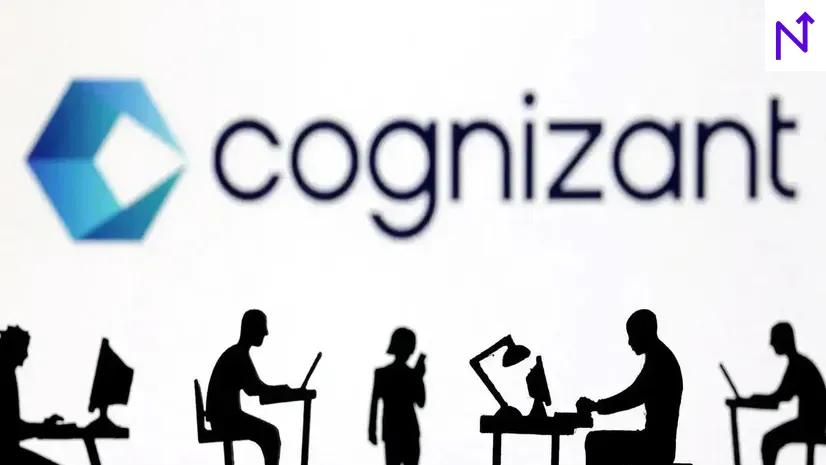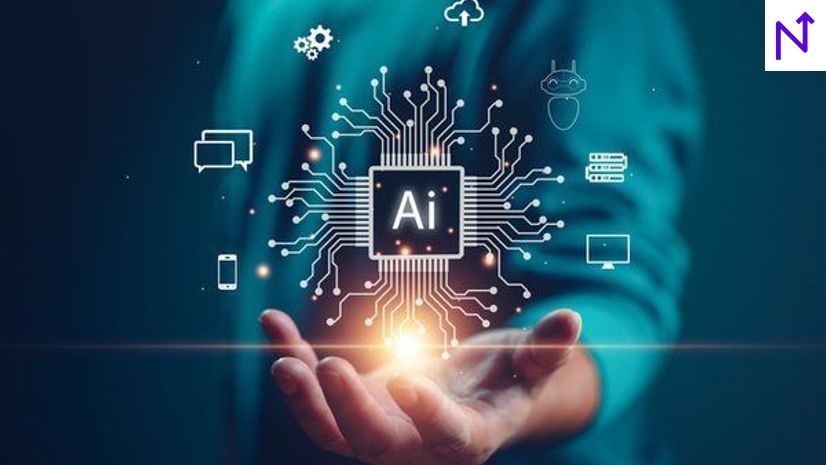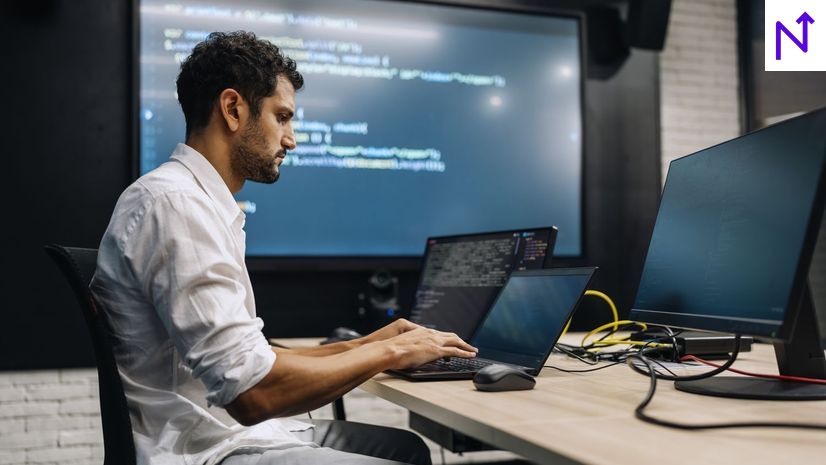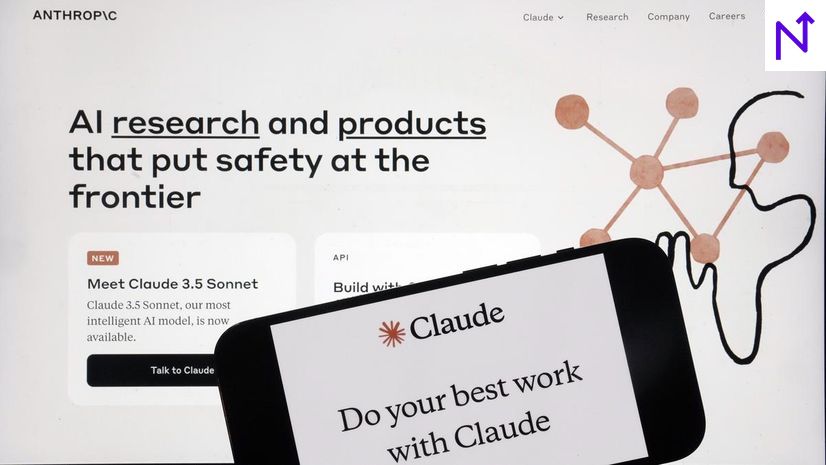Technology NEWS
Cognizant Partners with Workfabric AI for Context Engineering

By Yash Sangha
01 Min read | Updated on August 30, 2025
Summary
Cognizant announces a partnership with Workfabric AI to deploy 1,000 "context engineers" for industrializing agentic AI across enterprises.

Cognizant, a prominent information technology firm, recently announced a collaboration with Workfabric AI to deploy 1,000 "context engineers" within the next year. The strategic partnership aims to introduce agentic AI into various enterprises effectively. Led by Rohan Murty, the team plans to industrialize AI and transition from experimental stages to scalable adoption.
This initiative focuses on utilizing the ContextFabric platform by Workfabric AI to transform company workflows and data into actionable contexts for AI systems. By investing in context engineering, Cognizant aims to empower AI agents to reason, act, and adapt in alignment with enterprise objectives.
The partnership integrates context engineering with Cognizant’s Agentic Development Lifecycle (ADLC), intending to establish it as a foundational capability. These context engineers will be tasked with capturing enterprise knowledge, managing context lifecycle, and developing reusable "context packs" for deployment across different industries.
Rohan N. Murty, the CEO of Workfabric AI, highlighted the significant impact of this collaboration and emphasized the platform's efficiency in delivering higher accuracy, faster deployment cycles, and improved ROI in enterprise applications. This move signals a bold shift in the services industry towards advanced AI technologies.
As Cognizant and Workfabric AI pave the way for context engineering, the focus remains on enhancing AI capabilities by bridging the gap between technology and human intent. This partnership exemplifies a strategic approach towards AI adoption and sets a precedent for the future of AI integration in enterprises.
About the Author

Yash Sangha brings a wealth of knowledge in global finance. With a keen eye on the stock market and international economic trends, Yash provides in-depth analysis and insightful commentary that helps readers navigate the complexities of the financial world.
Technology NEWS
Corporate AI Success: What Sets the Top 5% Apart

By Shweta Thakur
02 Mins read | Updated on August 30, 2025
Summary
Bridging the gap in AI success: MIT study reveals only 5% of AI projects deliver value. Find out how successful companies customize and integrate AI, focusing on high-value use cases.

A recent MIT study revealed that only 5% of generative AI projects have provided measurable value to businesses, highlighting a significant gap between AI aspirations and successful implementations. What sets these successful projects apart is the deep integration of highly customized AI into workflows, focusing on narrow but high-value use cases and continuous learning rather than broad feature sets.
The study emphasized the importance of mastering the art and science of customizing AI to fit business needs, advocating for partnerships over standalone approaches. Successful AI initiatives prioritize domain fluency, workflow integration, and alignment with real business pain points rather than flashy user experiences.
The research suggests that "plug-and-play AI" is a myth, with customization being key to effective AI integration. Strategic partnerships were found to be more successful than internal development efforts, providing faster time to value, lower costs, and better alignment with operational workflows.
Industry leaders emphasize the importance of aligning AI initiatives with core business differentiators and outsourcing non-core AI functions to vendors when necessary. The study also highlights the rise of agentic AI architectures and the need for AI solutions to be deeply integrated into processes, policies, and company culture for sustained success.
In the realm of higher education, the MIT report's findings serve as a cautionary tale, showing that 95% of generative AI pilots in enterprises fail to deliver measurable business impact. The report advises universities to prioritize partnerships with specialized AI vendors who understand the unique requirements of education environments, rather than attempting to develop proprietary AI systems internally.
The key lesson from the MIT study is clear: successful AI adoption hinges on the right implementation strategy, often involving partnerships with specialized providers. By leveraging external expertise and focusing on efficient workflow integration, businesses and educational institutions can unlock the transformative potential of AI and avoid the pitfalls of failed AI initiatives.
About the Author

Shweta Thakur specializes in loans and credits, offering expert advice on managing debt and understanding credit scores. Her detailed guides and tips make complex financial topics accessible to everyone, ensuring readers make informed decisions.
Technology NEWS
AI-Driven Tech Transformation : Marks Software’s Death

By Suraj George
01 Min read | Updated on August 30, 2025
Summary
Discover how Microsoft, Alphabet, TSMC, and Palantir are leveraging AI to reshape enterprise tech, banking on automation, growth, and new horizons amid valuation perks and strategic advantages.

The global businesses are projected to spend a significant $1.23 trillion on enterprise software this year, a notable 11% increase from the previous year. Despite software being a top investment category, the rise of AI poses a threat to traditional software development. Tools like ChatGPT are enabling users to create software through natural language, potentially rendering pre-made software obsolete.
OpenAI's recent demonstration of the GPT-5 model, where an app for teaching French to English speakers was created on stage in minutes, highlights the growing trend of on-demand software creation. This shift towards AI-driven tools is impacting the tech industry, compounded by economic uncertainty globally.
Analysts are closely watching the impact of AI disruption, with software stocks experiencing turbulence recently. While AI tools like vibe coding are transforming software development, complex applications in areas like finance and human resources present challenges for full AI replacement.
Companies like Workday and Salesforce are incorporating AI into their products, emphasizing the rise of AI chatbots for streamlined operations. However, the complexity of existing software workflows and the limitations of AI present obstacles to complete software disintermediation.
While AI chatbots have disrupted certain sectors, replacing large-scale software systems poses a more significant challenge. Companies such as Microsoft, Alphabet, TSMC, and Palantir are identified as key beneficiaries in the evolving AI landscape. These firms leverage AI to automate workflows, enhance decision-making, and tap into new revenue streams, positioning them for success amid the AI-driven transformation of enterprise technology.
About the Author

Suraj George keeps a close watch on global economic trends and their impact on personal finance. His insightful articles connect the dots between international events and local financial decisions, providing a broad perspective for readers.
Technology NEWS
Elon Musk's xAI Unveils New Coding Model

By Sai Mohanty
01 Min read | Updated on August 30, 2025
Summary
Elon Musk's xAI introduces grok-code-fast-1, an agile AI coding tool, for quick and cost-effective coding tasks in collaboration with GitHub Copilot and Windsurf.

Elon Musk's startup, xAI, has unveiled a new agentic coding model, grok-code-fast-1, aimed at revolutionizing the AI industry. This innovative tool will be provided for free for a limited time, with GitHub Copilot and Windsurf among the initial launch partners.
The grok-code-fast-1 model is designed to efficiently handle coding tasks while remaining cost-effective due to its compact form. This move signals xAI's entry into a competitive field where other major players like OpenAI and Microsoft are also striving to provide AI coding assistance to users.
Microsoft previously introduced GitHub Copilot, an AI coding agent, while OpenAI released its own agent called Codex for ChatGPT Plus users. This advancement in AI technology has prompted legal action, with xAI suing Apple and OpenAI in the U.S. federal court over alleged anti-competitive practices.
The launch of grok-code-fast-1 represents a significant step towards offering cutting-edge coding solutions to developers. The model will be available through various subscription plans and can also be accessed via BYOK (Bring Your Own Key) for individual users.
This development underscores the ongoing evolution and increasing competitiveness within the AI industry, where companies continuously strive to enhance coding efficiency and accessibility through artificial intelligence technologies.
About the Author

Sai Mohanty is your go-to expert for all things tax-related. His articles simplify tax planning and compliance, offering strategies to maximize tax savings and ensure adherence to the latest regulations.
Technology NEWS
AI Impacting Entry-Level Workers

By Diya Bhavsar
01 Min read | Updated on August 29, 2025
Summary
Study shows AI disproportionately affecting entry-level software developers & customer service agents. Unemployment rates high for computer science majors. Tips to stand out & pivot in the job market.

A recent study utilizing real-time US payroll data has revealed that generative AI is making a significant impact on entry-level workers in certain fields like software development and customer service. Despite the historical notion of a computer science degree guaranteeing a high-paying job, recent graduates in these disciplines are facing challenges in finding employment, with unemployment rates for computer science and computer engineering majors currently among the highest for all majors.
The job market for software engineers has become more competitive due to an influx of new graduates, limited job openings, and changes in hiring practices. The demand for software engineers still exists, but it now favors experienced professionals over recent graduates. Major tech companies laying off employees have further flooded the market with experienced candidates, placing recent grads at a disadvantage in standing out amid intense competition.
To succeed in this evolving landscape, aspiring software engineers should stay flexible and open-minded. While roles at top tech firms are highly sought after, exploring opportunities in other sectors like healthcare or finance can lead to stable and rewarding tech roles. Additionally, upskilling and keeping up with technological advancements are crucial to differentiate oneself in the job market.
Networking and utilizing various job search channels beyond online job boards are essential strategies for finding opportunities. Seeking referrals, attending meetups, joining online communities, and connecting with professionals on platforms like LinkedIn can open doors to unadvertised job positions.
Despite the increasing competition, a career in software engineering remains valuable with long-term potential. While securing a software engineering position may be more challenging now, diligent effort and adaptability can lead to success in this dynamic field.
About the Author

Diya Bhavsar is a seasoned finance writer dedicated to helping readers master personal finance. Her practical advice on budgeting, saving, and investing empowers individuals to take control of their financial future with confidence.
Technology NEWS
AI Cyber Attacks Rise: Hackers Misuse Anthropic's Tools

By Shweta Thakur
02 Mins read | Updated on August 28, 2025
Summary
AI company Anthropic's tools are being weaponized by hackers for cyber attacks, including theft & extortion. AI models are increasingly exploited, intensifying calls for safeguards.

Hackers have weaponized artificial intelligence (AI) technology from US company Anthropic to carry out sophisticated cyber attacks, the company revealed. Anthropic's AI, including its chatbot Claude, was utilized by hackers for large-scale theft and extortion of personal data. The AI assisted in writing code to execute cyber attacks, with North Korean scammers using it to fraudulently secure remote jobs at top US firms.
The company managed to disrupt the threat and reported the incidents to authorities. As the use of AI in writing code gains popularity, Anthropic detected instances of AI being used for "vibe hacking," infiltrating multiple organizations, including government bodies. The hackers leveraged AI to make tactical decisions, select data to exfiltrate, and formulate targeted extortion demands and ransom amounts.
The incidents underscore the escalating risks posed by powerful AI tools in cybersecurity. Alina Timofeeva, a cyber-crime and AI adviser, emphasized the need for proactive detection and prevention strategies to address vulnerabilities exploited by cybercriminals leveraging AI.
Beyond cyber-crime, AI is also being misused for employment scams, with North Korean operatives using AI models to create fabricated profiles for jobs at US Fortune 500 tech companies. The technology aids in crafting job applications, translating messages, and coding, facilitating unauthorized access to sensitive systems.
According to security consultants, organizations must prioritize safeguarding AI-powered tools to prevent misuse and data breaches. Companies like Anthropic are taking steps to enhance detection mechanisms and collaborate with authorities to combat AI-related cyber threats.
Security experts caution that AI's increasing capabilities could lead to heightened risks of misuse in cybercrime if preemptive measures are not enacted swiftly. Governments are exploring regulations to address these concerns, with tech firms urged to bolster safeguards against AI exploitation for criminal activities. Such initiatives aim to mitigate the misuse of AI models by threat actors and enhance cybersecurity resilience in the digital landscape.
About the Author

Shweta Thakur specializes in loans and credits, offering expert advice on managing debt and understanding credit scores. Her detailed guides and tips make complex financial topics accessible to everyone, ensuring readers make informed decisions.
Technology NEWS
Chinese Hackers Linked to Global Targets Strike

By Urmi Kapoor
01 Min read | Updated on August 28, 2025
Summary
Chinese hackers linked to Salt Typhoon infiltrated major telecom carriers worldwide, posing a threat to global communications and tracking politicians.

A coalition of U.S. agencies and 12 allied governments have uncovered a sophisticated hacking operation, dubbed Salt Typhoon, orchestrated by Chinese entities. This operation breached telecommunication giants like AT&T and Verizon, granting access to millions of text messages and call data. The cyberattack extended beyond telecommunications to target various critical infrastructure sectors globally.
In a joint effort, the FBI, NSA, and other international intelligence bodies warned that Salt Typhoon infiltrated over 200 organizations in 80 countries. The hackers, associated with China's Ministry of State Security, cooperated with three Chinese private companies to carry out the attacks. This collaboration allowed the hackers to breach major telecom carriers, extract call records, and monitor communication networks.
The unprecedented scale and indiscriminate targeting of critical infrastructure underscore the audacity of the operation. The compromised companies allegedly selected their own targets, amplifying the campaign's impact on various sectors, including hospitality and transportation. The breach also affected politicians on both sides, emphasizing the far-reaching implications of the cyber espionage.
Despite efforts to mitigate the attacks, concerns linger regarding the hackers' ability to re-enter systems through undetected access points. The coalition's advisory includes a comprehensive guide for organizations on identifying intrusions and enhancing cybersecurity measures to combat future threats and safeguard sensitive data.
The revelation of Salt Typhoon signifies a critical escalation in China's cyber offensive capabilities, raising alarms about the vulnerability of global communication networks and essential infrastructure to state-sponsored cyber threats.
About the Author

Urmi Kapoor tracks the latest movements in the stock market, providing timely updates and expert analysis. Her deep understanding of market trends helps readers stay ahead of the curve and make strategic investment choices.







